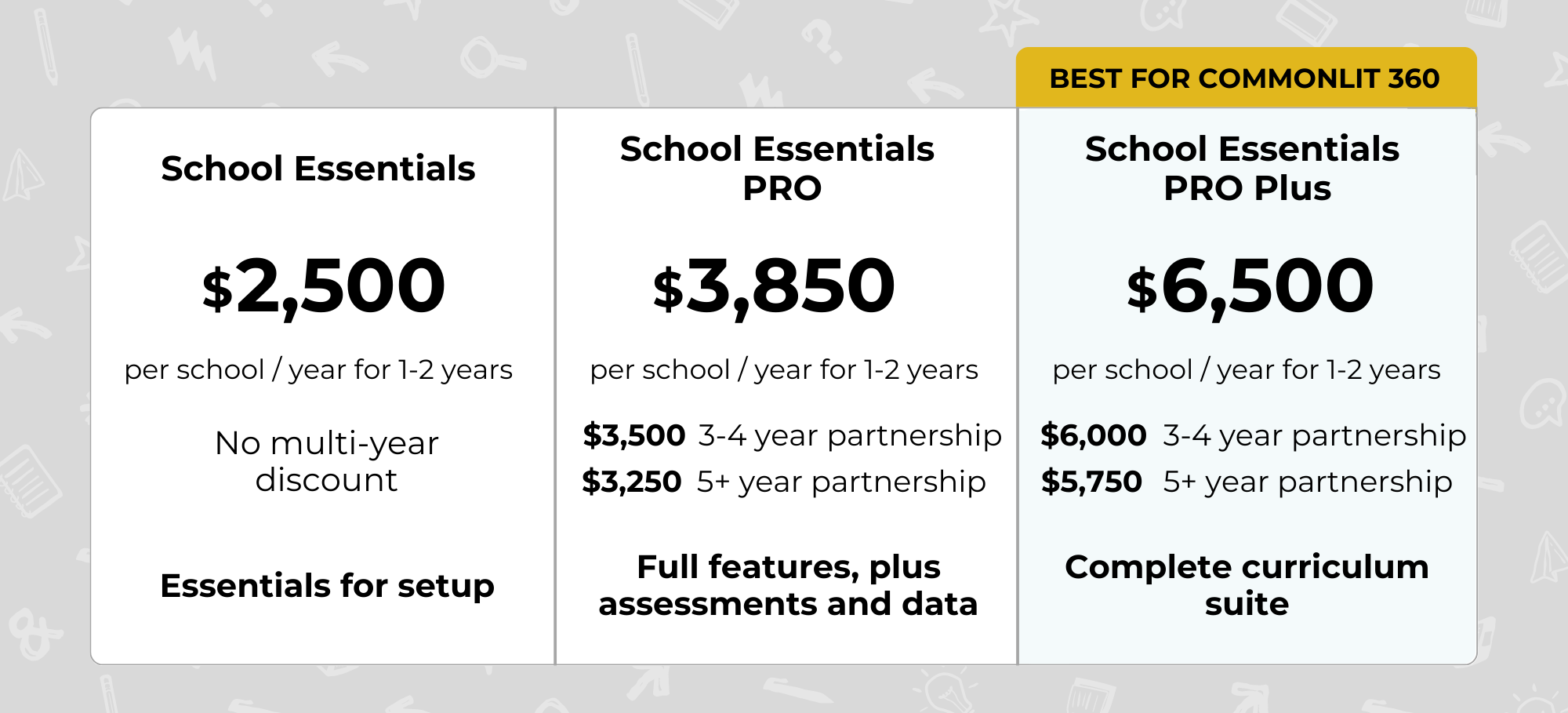CommonLit’s argumentative writing units engage students with interesting topics and activities that build argument skills and encourage student choice.
Our comprehensive ELA curriculum, CommonLit360, has highly-engaging argumentative units that put the crucial skill of argumentative writing at the forefront of each lesson.
These units are designed to capture student interest in a relevant, real-world issue, then allow them to form an educated opinion on this issue through whole class and independent reading, engaging multimedia and infographics, and student-chosen texts. Student learning culminates in the form of a debate, argumentative essay, and optional end of unit project.
Sparking Interest With Exciting Topics
The topics for CommonLit 360’s argumentative units are designed to be interesting and relevant to students’ lives. Here are the topics and essential questions for each grade:
Informational Texts Anchor Each Argumentative Writing Unit
CommonLit’s argumentative writing units are anchored around informational texts that provide background knowledge to support students’ end-of-unit essays.
In 9th Grade, there are six Essential Reading Lessons. These lessons introduce students to the concept of public art. Then, students learn about negative impacts of graffiti on historic structures, reasons why large cities are concerned about graffiti, and graffiti’s association with other types of crime. Students also learn about graffiti from a more positive lens, including learning about the Visual Artists Rights Act and how it protects graffiti artists, and information about the modern inventor of graffiti, Darryl McCray.
These texts form the foundation of knowledge students will draw upon to form their own opinions and write their end-of-unit argumentative essays.
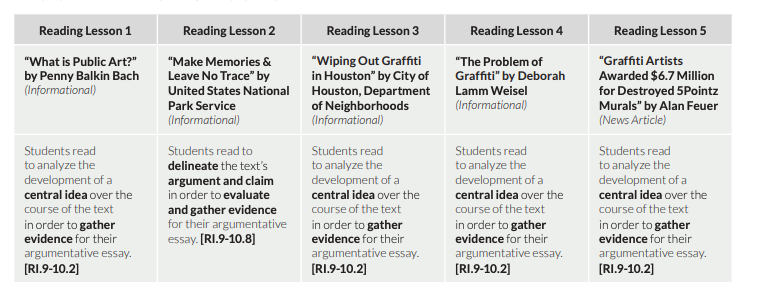

Learning Through Independent Research and Student Choice Using
Most units give students an opportunity to choose from a curated set of texts to further their knowledge and gather evidence for their final essays. This offers an excellent opportunity for student independence and collaborative discussion of different texts and perspectives.
After engaging in six Essential Reading Lessons, 9th Grade students will choose from a list of texts to build on their knowledge and strengthen their argument for or against graffiti.
Students are given two sets of texts and videos and must choose one of each to engage with. After reading and taking notes, they do a jigsaw activity to learn from partners about the two texts or videos they did not engage with.
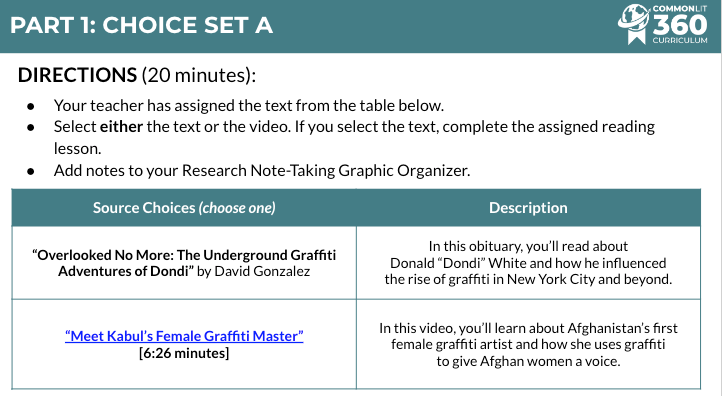
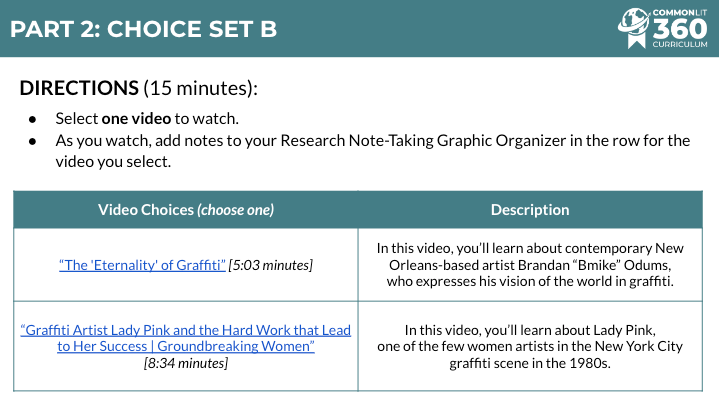
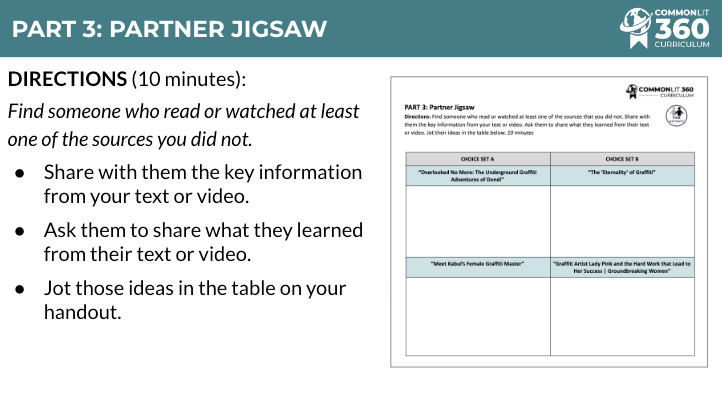
Debate Helps Students Strengthen their Argument
In our argumentative writing units, students have the chance to participate in a formal debate. By assigning students to a side and requiring collaboration amongst teams, these debates teach students to use reasoning and evidence to argue a point and respond to counter arguments.
In 9th Grade, students answer the debate question, “Should graffiti be protected?”

Debate lessons include rounds of partner debate and chances for students to confer in like-minded teams to gather evidence and prepare for rebuttal. These debates set students up for success in their essay drafting, because students leave with strong reasons and evidence for both sides of the argument and can make more informed, persuasive cases in their writing.
End-of-Unit Projects Foster Student Creativity
Each unit for Grades 6 to 10 includes an optional end-of-unit project. These projects are an exciting chance for students to collaborate with peers and present arguments in real-world scenarios.
Sharpening Argumentative Writing Skills
All argumentative units have lessons that guide students through an analysis of a student-written mentor text. Through these lessons, students learn the most important parts of an argumentative essay.
After writing a first draft, students complete revision lessons, which are a quick and exciting way for students to add argumentative techniques to their writing such as: addressing your audience directly, writing effective rhetorical questions, using repetition, or opening with narrative. In these lessons, students examine models and practice their new skills in fun, low-stake journal prompts such as “Convince a friend to lend you $1,000” or “describe the perfect school lunch” before revising their unit essays.
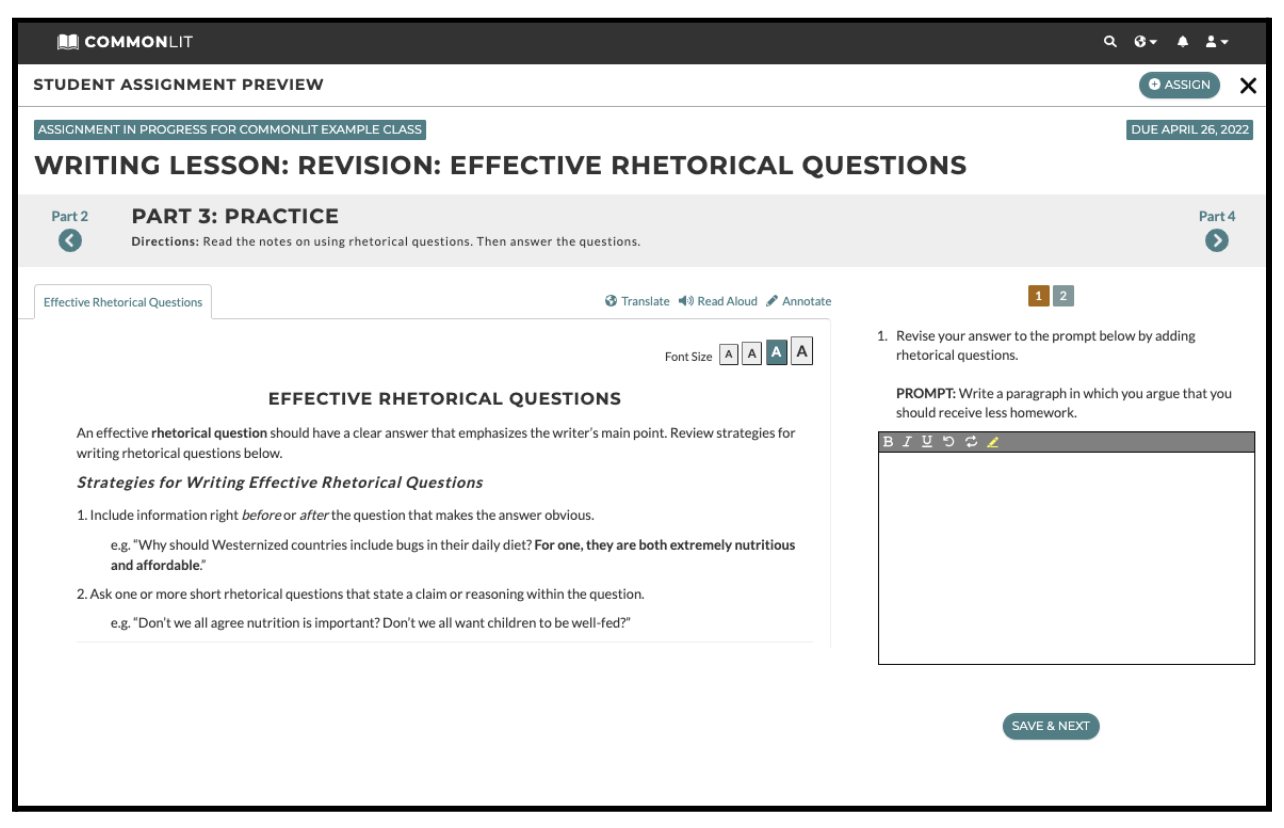
Writing lessons in the argumentative units include multiple opportunities for practice and revision.
Next Steps
If you are interested in learning more about CommonLit 360, here are some recommended next steps:
- Browse the 360 ELA Curriculum here.
- Sign up for a CommonLit 360 webinar for an opportunity to learn more and ask questions.
- Learn about the affordable wraparound services for schools and districts looking to adopt CommonLit 360.
